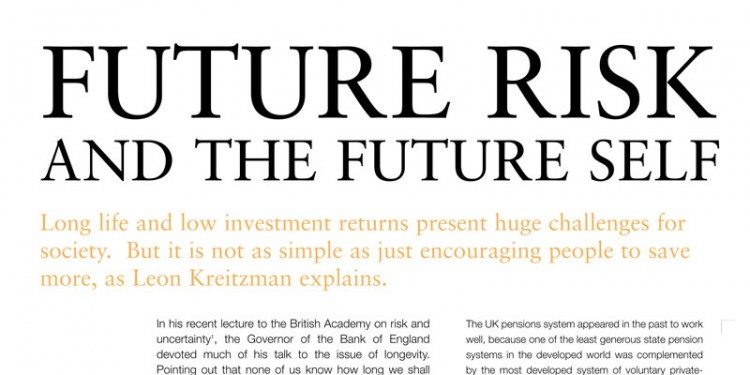Long life and low investment returns present huge challenges for society. But it is not as simple as just encouraging people to save more, as Leon Kreitzman explains.
In his recent lecture to the British Academy on risk and uncertainty, the Governor of the Bank of England devoted much of his talk to the issue of longevity. Pointing out that none of us know how long we shall live, Mervyn King was at pains to differentiate individual from collective risk.
The former – namely that we die either earlier or later than the average for our cohort – can be covered by taking out life insurance against early death or by purchasing an annuity to insure against a later death. Collective risk – that average expectation of life will rise or fall in the future – cannot, by definition, be shared amongst members of the same generation. The principle of insuring individual longevity risk is that those who live longer than average can be paid using the contributions of those who die earlier than average. But if the average itself rises, all contributions must increase – there is no possibility of insuring changes in the average from within the cohort.
Can we quantify this risk? The expectation of life has risen significantly over the past century, but how will it change in the future? That is the uncertainty, and it makes for a very broad funnel of doubt. Risk as such can be quantified and handled, but – as the Prime Minister’s former spokesman might have said – “we don’t do uncertainty”.
If only difficult issues could be wished away like that. Like it or not, this government, and any future ones, will have to “do uncertainty” when it comes to pensions and later-life financial provision. As the Pensions Commission has said:
The UK pensions system appeared in the past to work well, because one of the least generous state pension systems in the developed world was complemented by the most developed system of voluntary private funded pensions … but the fool’s paradise has come to an end.
To read the full article, please download the PDF above.

